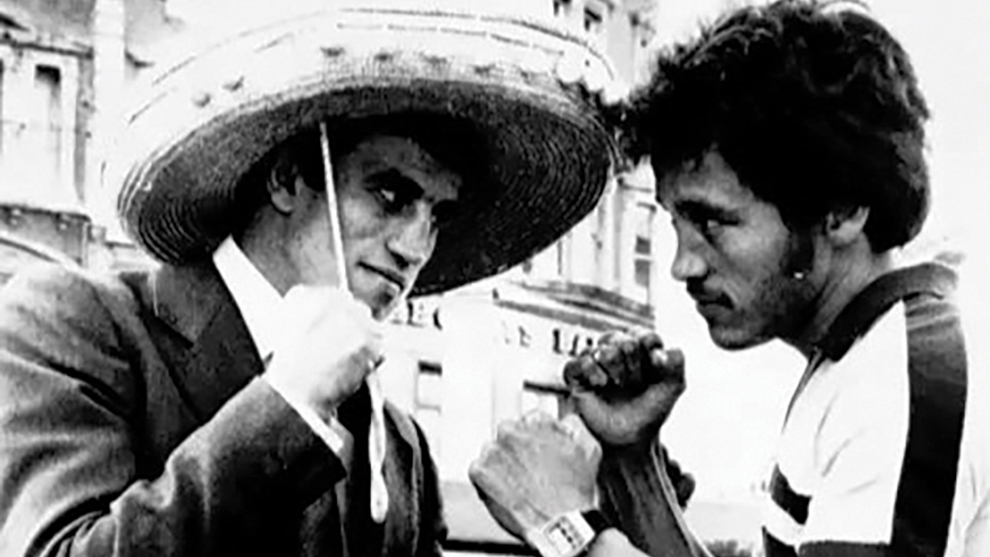OCTOBER 14 1980 will be remembered as a black day in British professional boxing and an especially low point between the editor and staff of Boxing News and the leading British promoters at the time, Mickey Duff and Mike Barrett.
The sport was already reeling from the plight of Johnny Owen, who was lying in a coma following his contest with Lupe Pintor (and who was to die just a few weeks later), the appalling spectacle of Muhammad Ali’s last contest against Larry Holmes and the disgraceful scenes that followed Alan Minter’s loss to Marvin Hagler. Then we had the show at The Royal Albert Hall on the aforementioned date.
The BN headline said it all, “Oh, what a load of rubbish”, and editor Harry Mullan added further criticism with the opening words of his column, “There can be no excuse, no justification for this travesty of a tournament.”
Four Mexican imports went down to leading British fighters in a total of only seven rounds and, on a show consisting of seven contests, that meant that the fans saw little actual boxing and virtually none of any quality. On the undercard, up-and-coming Mark Kaylor hammered one-time welterweight contender Peter Morris of Bridgnorth in five one-sided rounds, Coventry’s Joe Jackson upset Davey Armstrong in “an untidy bout which drew boos and slow handclaps from the crowd”, and Gary Nickels outpointed Billy Straub in an eight-rounder that was passable, at least, as a contest.
Then came the debacle. Jimmy Flint, a big-hitter from Wapping, stopped Cordobes Lopez in two rounds with BN commenting that “Bob Galloway’s intervention would have been justified far earlier.” Next, Cornelius Boza-Edwards stopped Roberto Torres on a cut eyebrow in the second round of a bout which “from the first minute of the opening round it had been apparent that the fight had no chance of going the distance,” such was the difference in class between the two.
Dave Boy Green was returning from his recent loss to Sugar Ray Leonard, and one could therefore excuse the fact that he was being eased in, but his opponent, Mario Mendez, provided “precious little to beat. He produced the odd glimmer of the talented, canny fighter that he may have been years back, but his resolve against Green was hardly made of iron.”
Finally, we came to the headliner between Charlie Magri and Enrique Castro. This one lasted only one round and was “not so much a boxing match between two evenly matched contestants as a one-sided beating-up.” Castro was courageous, but utterly outclassed.
Duff and Barrett claimed that their American matchmaker Don Chagrin supplied them with details that suggested that all four Mexicans were worthy opponents for the British lads. Castro, for instance, had supposedly taken part in eight previous contests that year, all of them being wins. With the benefit of hindsight, and BoxRec in particular, we can now see the truth; Castro had fought only once that year, a victory over Raul Bacheco for the Baja California state flyweight title and had suffered two back-to-back knockout losses in 1979 in a total of only three rounds. He was clearly no match for Magri.
Similarly, Mendez had lost his all of his previous five bouts inside the distance and hadn’t fought at all for two years, Lopez had lost four of his previous six and Torres had won only one of his last seven. Quite obviously, Duff and Barret had been sailed down the river by their American advisors and they had to take the criticism on the chin, as too did the Board, who had approved the opponents.
Thankfully, on the next show at this iconic venue, Duff and Barrett pulled all the stops out, with Tony Sibson’s victory over Matteo Salvemini for the European middleweight title being a humdinger and Charlie Magri outscoring Santos Laciar in a much tougher contest against a world-rated Argentinian.
